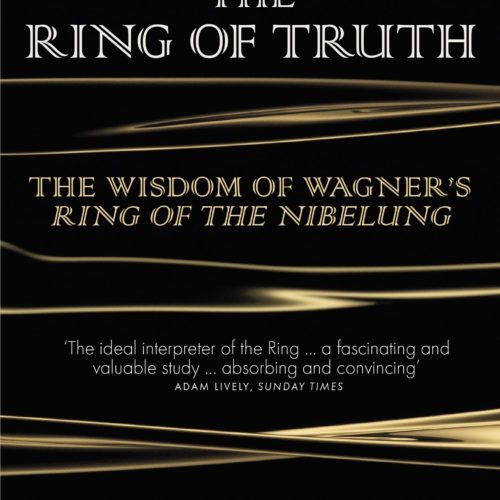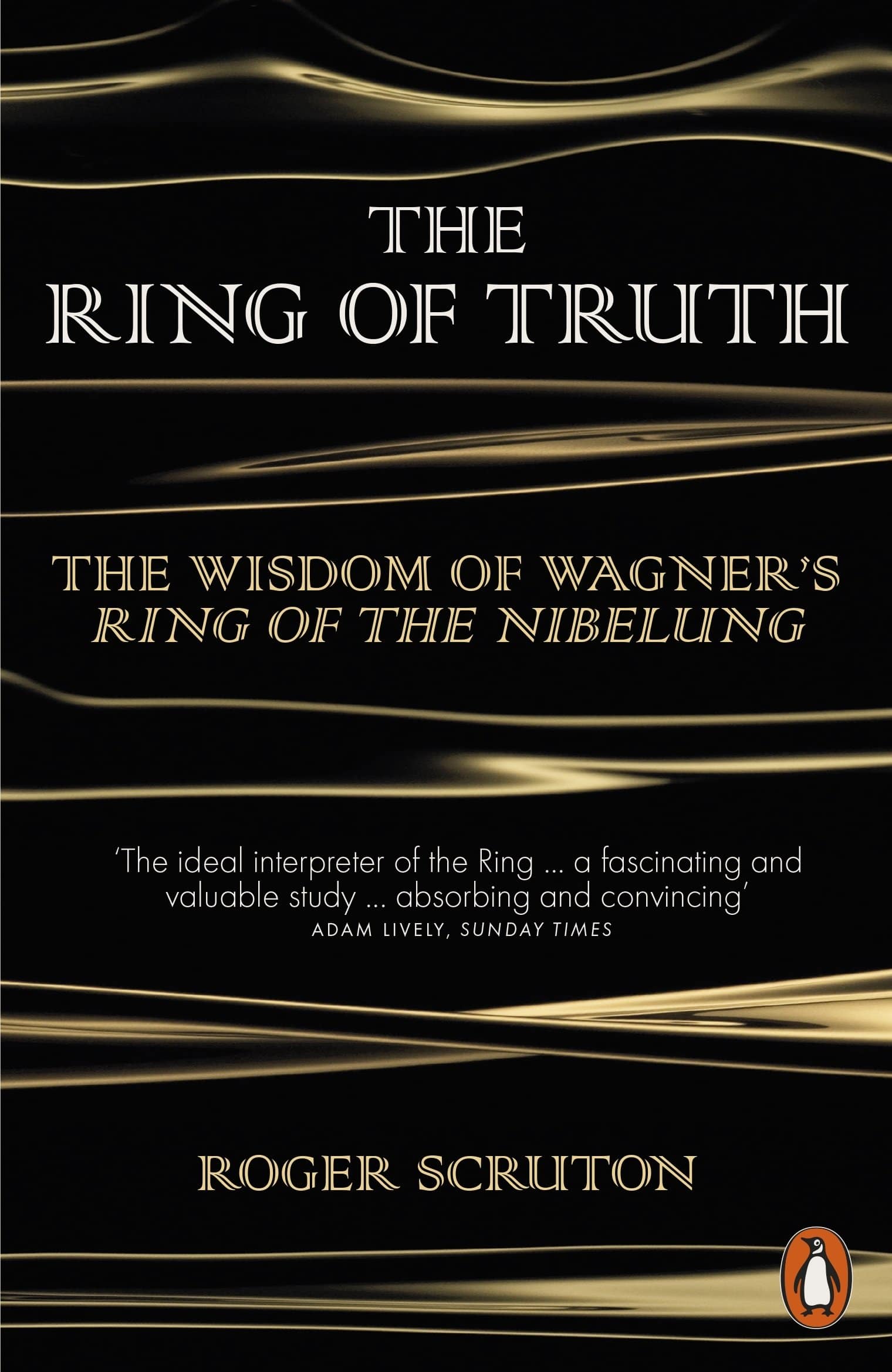Death of a prominent Wagnerian, 75
mainThe philosopher Roger Scruton, an unwavering fount of conservative opinion on society and art, died today of cancer.
A worshipper of Wagner who found no fault with his human shortcomings, Scrutonn rejected most of musical modernism, albeit with a tolerant whimsicality.
He will be missed.

John Borstlap writes:
One does not have to agree with his various ideas about politics, wine or fox hunting, to experience the deeply intelligent and entirely accessible writings about any subject as a great stimulus to develop one’s own thoughts about the subject.
I had many stimulating exchanges with him about music, he wrote recommendations for my music, we discussed the music of his opera ‘Violet’ of which he gave me the full score. He wrote some truly beautiful songs. He came all the way from Wiltshire to the UK premiere of my piece ‘Psyche’ (elaboration of a Wagner sketch) about which he was very complimentary. In the beginning I found him quite intimidating, untill I discovered behind the impressive intellectual front a soft-hearted romantic, whose conservatism is a particular British kind going-back to 18C Edmond Burke, who warned for the abberations of the French Revolution and correctly predicted what disasters totalitarian idealism brings to the world of real, living people. We did not agree on Wagner, but who does? His ‘Aesthetics of Music’ has greatly helped me to develop my own musical philosophy of regeneration. Scruton saw through modernism, and his analysis – for instance, in ‘Modern Culture‘ – will convert every intelligent person to a better undnerstanding of art, music, architecture, literature, painting, poetry.
Last word:
“I try out my thoughts on Parsifal before a crowded meeting of the Wagner Society. Through a wonderful artistic contrivance Wagner connects redemption and suffering, showing that our highest aspirations grow from our darkest griefs, and that the gate to fulfilment stands on the way of loss. The music says this, even if the words and the plot shroud it in mystery.” (https://blogs.spectator.co.uk/2020/01/roger-scruton-1944-2020/)






He was a great man who spoke in the most magnificent way about art and music. The person who will carry the intellectual torch forward is Douglas Murray, who wrote this panegyric for Sir Roger Scruton. Douglas Murray is a spear.
https://blogs.spectator.co.uk/2020/01/roger-scruton-a-man-who-seemed-bigger-than-the-age/
RIP. I have several of his books including his study of Tristan und Isolde.
Sad news. Bryan Magee, whose writings on Wagner are worth reading as he emphasised the influence of Schopenhauer on Wagner, also downplayed Wagner’s shortcomings.In the end it all comes down to his German nationalism & above all his antisemitism. What a towering genius in spite of all these reprehensible qualities.
These ‘reprehensible qualities’ are always greatly exaggerated thanks to Hitler. I don’t think we should give the latter such honour.
Whether intended or not, I view “The Ring” as both a comedy and a feminist’s tale.
‘….albeit with a tolerant whimsicality’
True, this was his saving grace .
An example of self important irrelevant junk. A waste of trees.
Who would have thought? There’s still some life under that lonely rock.
a more measured assessment can be found from Ivan Hewett :
https://www.prospectmagazine.co.uk/magazine/what-the-classical-devotees-get-wrong-about-modern-music
Hewett is of the opinion that Western classical music is not something more eleveated, or: less vulgar, than pop music, and he would have wished Scruton to give equal attention and reverence to the lower strata of music making. Also he does not like S’s restricting himself, in that new book, to Western music because there is so much more outside it. Indeed there is. But that was not S’s subject. Hewett is one of those critics who fear elitism, so it could not be that Western classical music could be really better than pop or musical traditions in other cultures. But obviously, it is unnecessary to compare different musical traditions since (as Hewett says himself) they are embeded within their broader culture and different histories surrounding the music. For that reason, it is silly to complain about the absence of things that are not Western classical music.
Didn’t he take money from the tobacco industry for planting in magazines articles defending smoking? And then there was his terribly bad argument against homosexuality in Sexual Desire, that true erotic arousal and all that involves a sense of mystery and there can’t be any mystery when John is in bed with Mark.
All of that was indeed wrong. Even logical arguments can get off the rails where they collide with pockets of reality. Scruton was only human and sometimes made mistakes, like all of us and that does not diminish in the slightest his achievements. By the way, his anti-anti-smoke campaign never got off the ground, and it has to be remembered that his intention was to protest against the idea that a government should decide about our health issues, which can be seen as private matters. Till how far is it OK for the state to sniff around in our private lives? ‘Sexual Desire’ I found literally impossible to read, since a philosophical investigation did not seem the most effective instrument for a psychological subject. But who cares? He wrote many more things, on different subjects, which are all excellent instruments to sharpen the reader’s own mind. On culture, and Western classical music and architecture he was most eloquent.
He worked as a distinguished research fellow for the Future Symphony Institute, utilizing not only his writings specific to music but his broader understandings of the problems of the various ideologies of modernism for regular people and culture. He cared very much that classical music should actually flourish not just in the grand institutions, but in private life and in small-bore local community associations. In a stroke of destiny, he died yesterday on the birthdate of Edmund Burke, the philosopher closest to his heart and way of thinking about society. You can see his writings here: http://www.futuresymphony.org
He also wrote a recent book, ‘Music as an Art’, through this collaboration.
A great man, a brilliant thinker, and wonderful writer. RIP.
Yes, indeed: he was a great thinker, by most accounts a good man, and virtually everything he wrote about music is worth reading.
Wholeheartedly recommended: ‘Modern Culture’ which includes the sharpest analysis of postmodern ‘thinking’, revealing the cynical nihilism behind so much politically-motivated attacks on the arts and cultural institutions:
https://www.amazon.com/Modern-Culture-Roger-Scruton/dp/0826494447